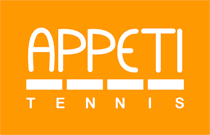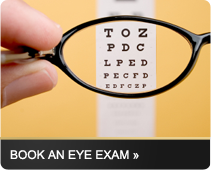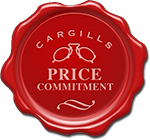Your Optometrist may suggest certain lens options at the end of your examination. They will then do a handover to one of our qualified Dispensing Opticians or Dispensing Assistants who will explain and guide you through the lens options that are available and suitable for you.
As an independent Optometrists we can choose from many lens products so you receive the most suitable spectacle lenses.
What lens options are available?
- Single Vision– these lenses contain only one fixed power and so focus at one distance. These lenses are suitable for Myopic (short-sighted), Hyperopic (long-sighted) and Reading glasses.
- Bifocals– these lenses contain two fixed powers and so focus at two distances. They are usually set for far and near vision but can be set for computer and near. Trifocals with three fixed powers are also available.
- Varifocals– also called Progressives, these lenses have a range of power and focus from far to near including all the intermediate distances in between e.g. computer distance.
- Office (Degressive) Lenses– these lenses also have a range of power but it is set for your computer distance and near vision.
Refractive Index & Lens Design
- Standard Index– your prescription may be low so you may only need standard lenses, but you may wish to toughen the surface to help prevent scratches or apply an anti-reflection coating to minimise glare. These lenses are available in both plastic and glass materials.
- Mid and High Index– the refractive index of a material refers to its density and thus how much it can bend light. The higher the index the thinner and lighter we can make your lenses, they are the ideal choice for higher prescriptions or if you have chosen a thin style frame. These lenses are available in both plastic and glass materials.
- Spherical Lenses– this design has a constant lens curvature and is suitable for lower prescriptions.
- Aspheric Lenses– this design helps flatten the curvature of the lens, it is especially useful in hyperopic (long-sighted) prescriptions making for a thinner lens and reducing the eye magnification effect.
Lens Materials and Coatings
- Plastic Lenses– these are the most popular lenses used today, they are lighter than glass and safer as they tend not to shatter. Plastic is a softer material than glass though, so we generally advise applying a Hard Coat to toughen the surface to help prevent scratches.
- Glass Lenses– great scratch resistant properties and available in a higher refractive index than plastic, they are usually reserved for high myopic (short-sighted) prescriptions. Do be careful not to chip or drop them though, glass is generally not suitable for children.
- Polycarbonate– the most impact resistant lenses available, primarily used in safety glasses, sports eyewear and sometimes for children. This material normally needs a hard coat to toughen the lens as it does scratch more easily.
- Hard Coat– this treatment toughens the lens surface to help protect from scratches.
- Anti-Reflection– this coating applied to the front and back surface of the lens helps minimise unwanted reflections. It is ideal for night driving, computer use and cosmetically superior especially in rimless frame styles. You do have to keep this coating clean and a special microfibre cloth will be provided.
- Drive Lenses– these specially designed lenses include an anti-reflection coating along with a subtle filter to reduce glare from lights at night, they are especially helpful if you have early cataracts.
- SeeCoat Blue– specifically designed coating for use on VDU’s to relieve the eyestrain associated with Computer Vision Syndrome (CVS) by filtering the intense blue light emitted by digital screens.
Tints & Special Treatment
- Tints– most lenses can be tinted. There is a choice of colours, depth of tint, they can even be graduated (tints that fade towards the lower part of the lens). Mainly used to produce full sun protection they can also be made paler to reduce eyestrain or therapeutic to relieve Visual Stress, see our Intuitive Colorimeter webpage.
- Drive Lenses– these specially designed lenses include an anti-reflection coating along with a subtle filter to reduce glare from lights at night, they are especially helpful if you have early cataracts.
- Transitions– also known as photochromatic, these lenses adjust the tint in your spectacles according to the amount of UV light. The sunnier it is the darker they get and vice versa. They will not darken as much in the car as the windscreen does block some UV light.
- Polarized Lenses– the ultimate sun and glare protection and comfort available. Ideal for bright sunshine and high reflective (albido) environments like snow and water sports.
- Specialist Treatments– it is possible to mirror coat some lenses, toughen them for certain activities and use contrast enhancing tints for sports such as golf.
* 2nd Pair 50% discount offer. Receive a 50% discount on a 2nd pair of spectacles when a complete pair (frames & lenses) are purchased. The offer includes single vision, bifocal and varifocal lens (which are of the same prescription), including any coatings or tints. The offer excludes reglazes & non-prescription sunglasses, and is not to be used with any other offers.




